Diving into Singapore’s marine ecology
July 14, 2025
Congratulations to Rochelle Chan from NUS’ Department of Biological Sciences on being awarded the Huntingford Medal at the Fisheries Society of the British Isles (FSBI) Annual Symposium awards ceremony on Thursday 10 July 2025!
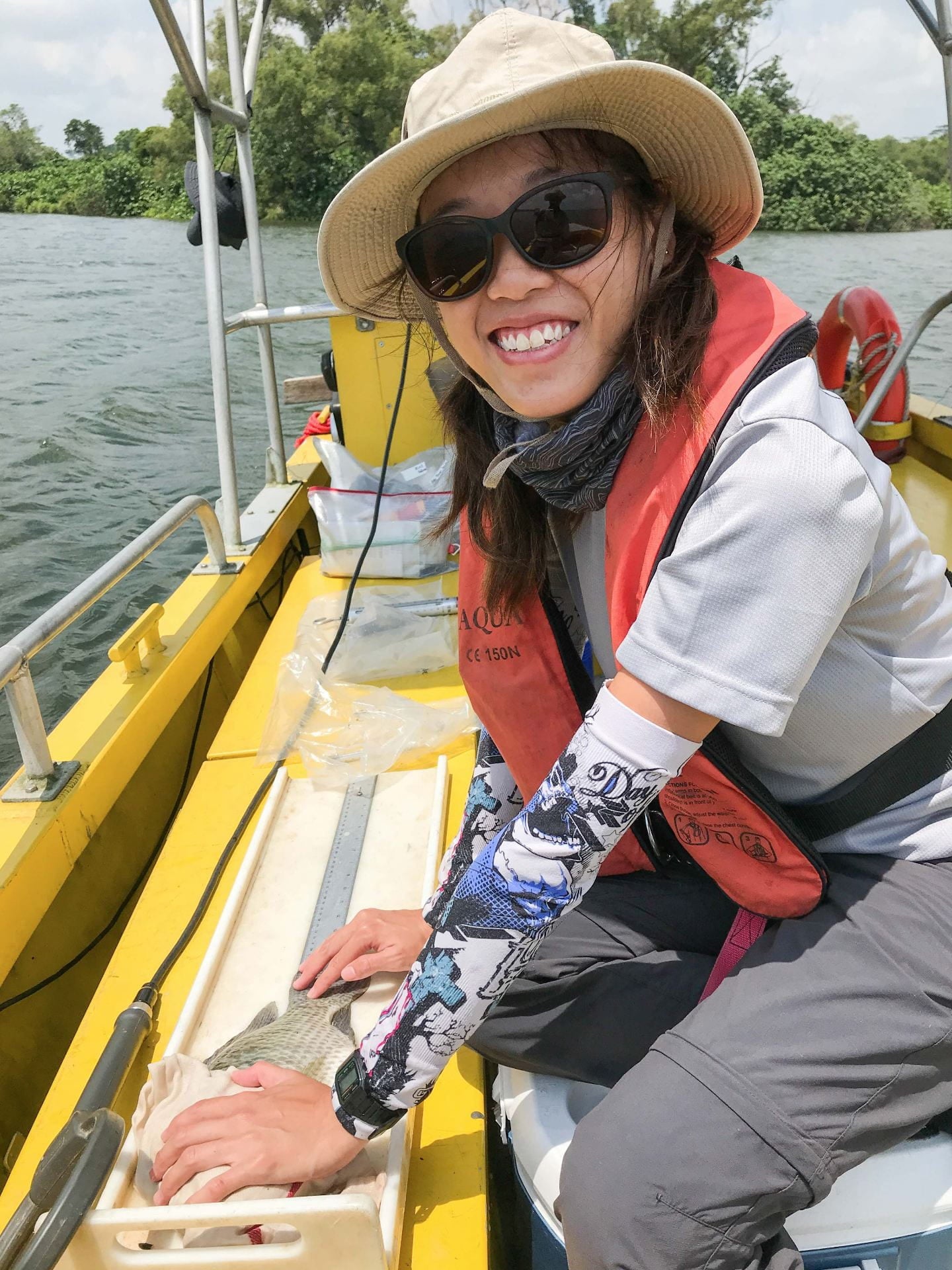
Progress in DNA barcoding techniques has advanced the process of genetic taxonomic identification, allowing greater access for bulk samples that are challenging to distinguish morphologically. However, a major bottleneck of DNA sequencing remains – the economics of obtaining and processing samples.
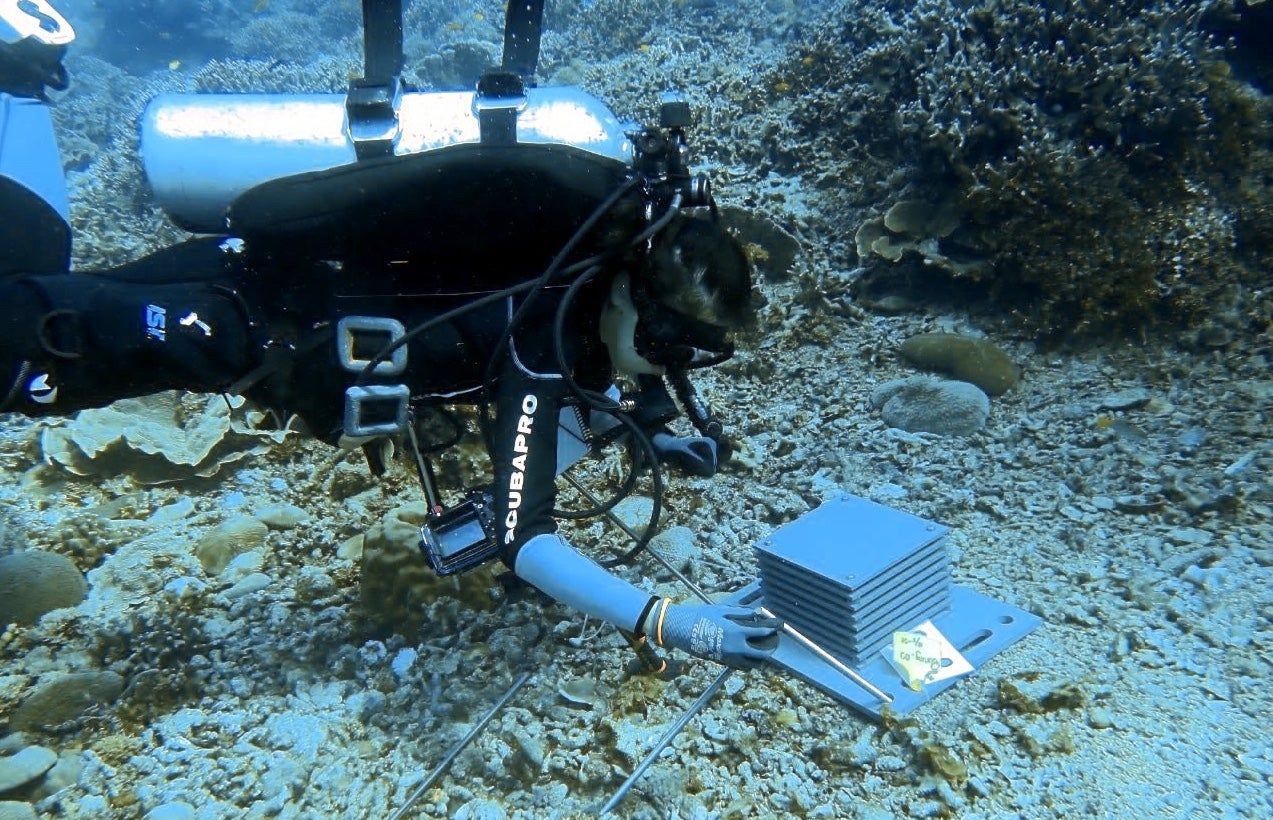
Rochelle successfully demonstrated the feasibility of an alternative process – reverse workflow – in barcoding difficult-to-identify fish larvae to understand connectivity between adults and larval fishes in Singapore’s coral reefs. Her work expedites taxonomic identification of fish larvae by enhancing reference barcode databases; this enables more precise sampling of species diversity and contributes to better understanding of fish diversity and connectivity across the seascape.
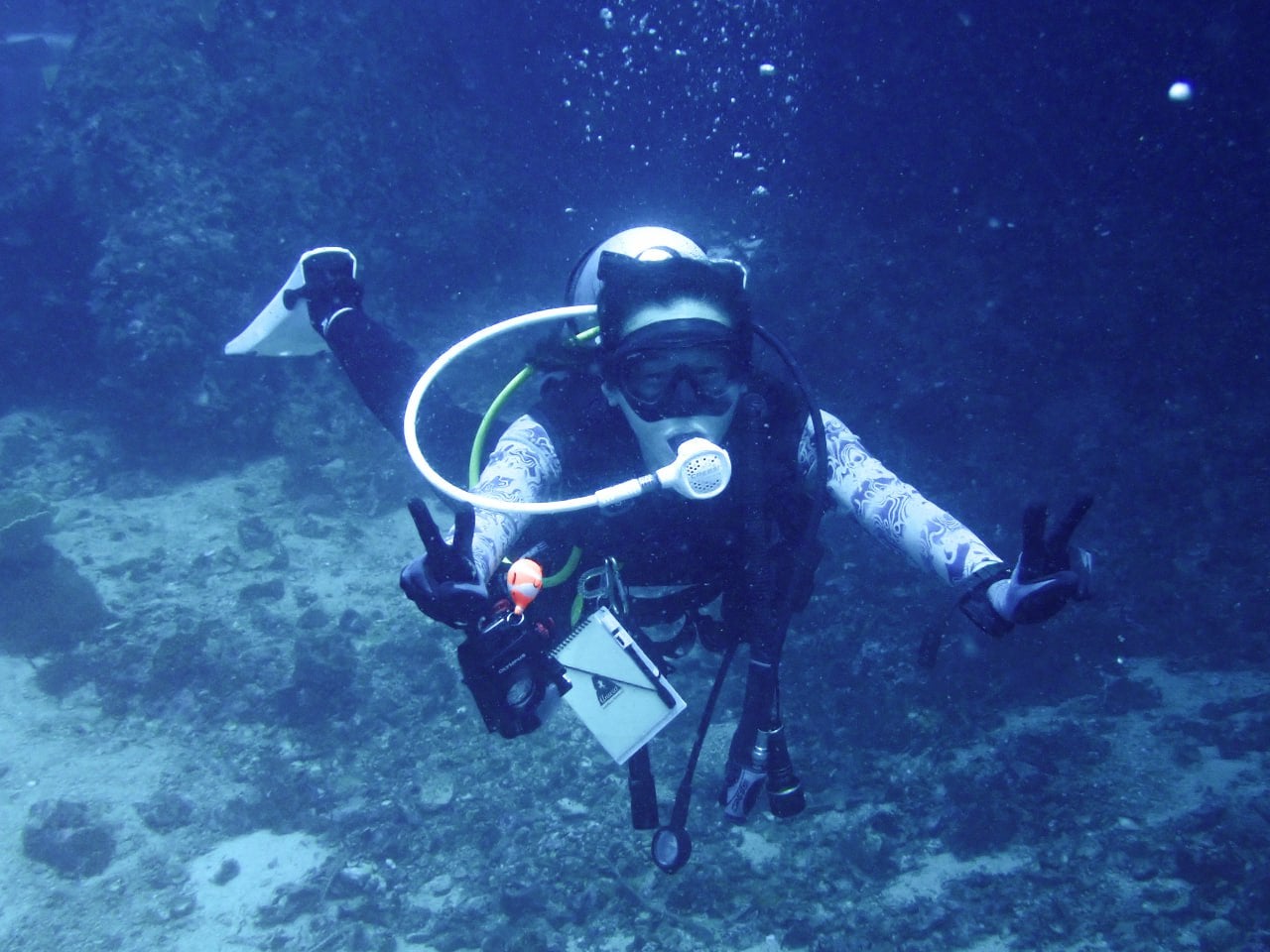
Rochelle first fell in love with the quiet strength of the ocean and the diversity of marine animals when she learned to scuba dive eight years ago. This opened her eyes to a whole new realm, setting her firmly towards the path of marine science and aquatic ecology.
She has not looked back since. Her undergraduate project on sea anemones and anemonefish sparked her interest in applying scientific techniques and rigour to study fishes, which she describes “as a particularly special group of fauna to me.”
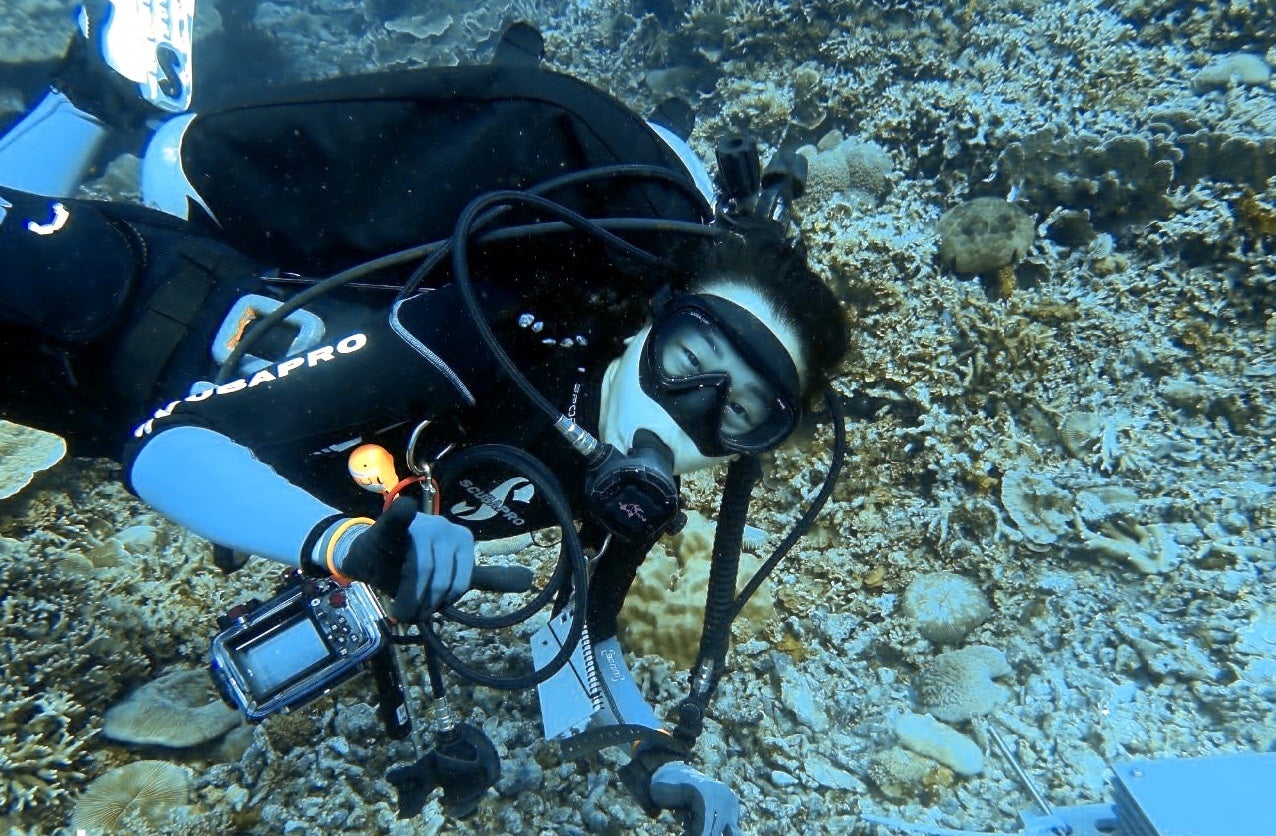
Thereafter, she went on to characterise trophic networks of reservoirs in Singapore, which gave her further exposure to the local diversity of freshwater reef fishes and their vulnerability to small, abrupt environmental disturbances.
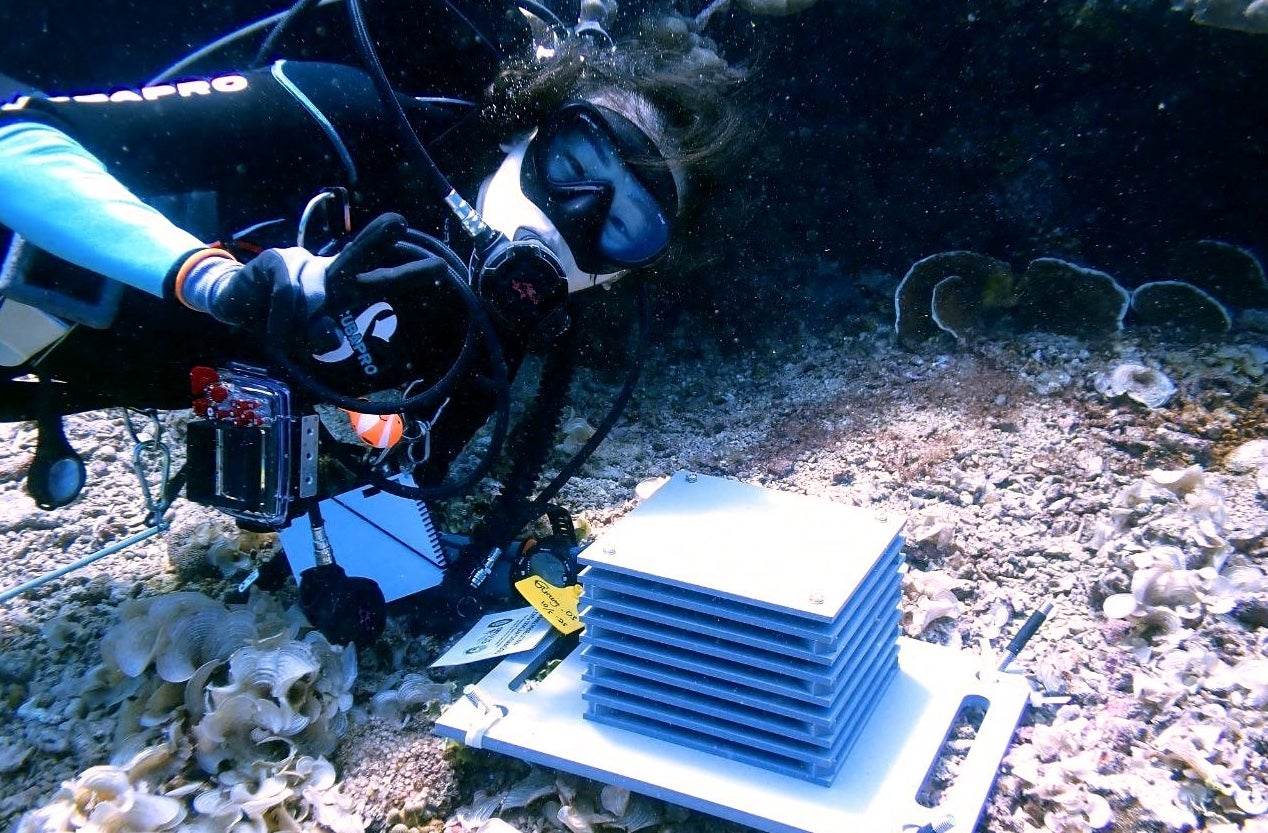
Her work is an ideal blend of her professional and personal passions – looking for little critters (fishes, crabs, shrimps etc.) that can be found within hard and soft corals, sea urchins or on gorgonians during her reef explorations – an endeavour which she describes as “a little game of hide-and-seek and treasure hunt.”
Rochelle says, “Problem-solving is important in research as situations and results can be unpredictable especially in laboratory work or fieldwork.”

She adds, “I am fortunate to meet many like-minded individuals – scientists, policymakers, business owners – who share the same passion towards the environment and sustainability. This inspires me to further build on my knowledge of the ocean and environmental issues by exploring opportunities related to environmental sustainability and governance in the future, such as professional services and consulting, transportation logistics and aviation, consumer goods and technology.”
Rochelle, who just completed her Master’s degree, received the medal in recognition of her paper published in the Journal of Fish Biology. She is also the recipient of the SeaKeepers Marine Science Student Award.


